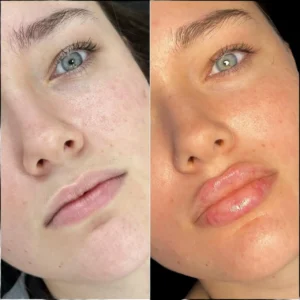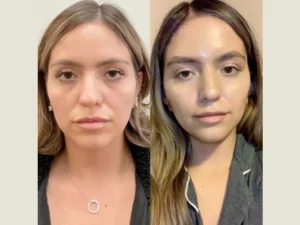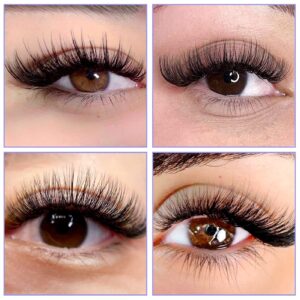
For many couples, going through IVF (commonly referred to as the “test tube baby” process) is a life-changing journey. It brings hope where natural conception has failed. But what happens after that? Can a couple who once needed medical help to conceive actually get pregnant naturally later on?
Surprisingly, the answer is yes — natural pregnancies after IVF do happen, and they’re more common than most people think. Let’s explore the possibilities, reasons behind it, and what couples should know.
1. Yes, It’s Possible — and Not as Rare as You Might Think
Many couples assume that if they needed IVF once, they’ll always need it. But studies have shown that up to 20% of women conceive naturally after having a baby through IVF. This spontaneous conception usually occurs within a few years after the first IVF baby.
It’s often called a “miracle baby”, but there’s a medical explanation behind it.
2. Why Natural Pregnancy Can Happen After IVF
Several factors contribute to a successful natural conception after IVF:
-
Temporary fertility issues: Some fertility problems resolve on their own, such as hormonal imbalances or stress-related ovulation disorders.
-
Improved reproductive health: IVF treatments often include medications and lifestyle changes that can improve fertility even after the treatment ends.
-
Reduced stress: After having a child via IVF, some couples feel less pressure, which may positively affect fertility.
Also, some women experience unexplained infertility, which means there’s no clear medical reason for their difficulty conceiving — making natural pregnancy a real possibility later on.
3. When Natural Pregnancy Is Less Likely
While spontaneous conception is possible, certain medical conditions make it less likely, including:
-
Blocked fallopian tubes
-
Very low sperm count
-
Severe endometriosis
-
Advanced maternal age (especially over 40)
-
Premature ovarian failure
If the cause of infertility was permanent or progressive, natural conception after IVF is usually rare. That’s why it’s important to know your diagnosis.
4. Should You Still Use Birth Control After IVF?
Yes — unless you’re open to getting pregnant again. Many couples are surprised by a natural pregnancy because they assume it’s not possible after IVF. If you’re not planning for another child right away, discuss birth control options with your doctor post-treatment.
5. Emotional and Medical Considerations
Natural pregnancy after IVF may come as a joyful surprise, but it can also bring unexpected emotional and logistical challenges, especially for couples who assumed they were done building their family. It’s important to:
-
Confirm the pregnancy early
-
Monitor for any risks (especially for older mothers)
-
Prepare for prenatal care just as you would with IVF
Every pregnancy — whether through IVF or naturally — deserves the same care and attention.
Conclusion
While IVF provides hope when natural conception doesn’t work, it doesn’t necessarily mean natural pregnancy is off the table forever. Many couples go on to conceive naturally after having a test tube baby, especially when the original fertility barriers were temporary.
So yes — natural pregnancy after IVF is possible, and in some cases, even probable.
Talk to Fertility Experts in Lahore
Want to understand your chances of natural conception after IVF? Schedule a consultation at Australian Concept Infertility Medical Center, Lahore. With decades of experience, expert diagnostics, and compassionate care, Australian Concept helps you plan your future — whether it includes another IVF cycle or a natural path to parenthood.
Frequently Asked Questions (FAQs)
1. Is it common to get pregnant naturally after IVF?
Yes, it’s more common than most people think. Studies show that around 15–20% of women conceive naturally after having a baby through IVF, especially within a few years of treatment.
2. How long after IVF can a natural pregnancy happen?
Natural pregnancies can happen anytime after a successful IVF cycle, but many occur within 1 to 3 years. The timeline varies depending on age, fertility health, and underlying causes.
3. Why would natural pregnancy happen if IVF was needed before?
In many cases, the fertility issue may have been temporary, like stress-related ovulation issues or mild hormonal imbalance. IVF can also improve overall reproductive health, making natural conception possible later.
4. Does having a test tube baby mean I’m infertile for life?
Not necessarily. IVF is often used when conception is difficult, not impossible. Many couples who conceived through IVF can still get pregnant naturally afterward, depending on the root cause of infertility.
5. Should I use birth control after an IVF pregnancy?
Yes — unless you are actively trying for another child. Many couples are surprised by unplanned natural pregnancies after IVF, so using birth control is wise if you’re not ready for another baby.
6. Are natural pregnancies after IVF riskier?
Not always. If the mother is healthy and the pregnancy is monitored well, risks are similar to any pregnancy. However, women over 35 or with preexisting conditions should have close medical supervision.
7. Can I plan a natural pregnancy after IVF or is it just luck?
In some cases, yes — especially if your fertility issue was not severe or has improved. A fertility specialist can guide you on your current chances of conceiving naturally and whether it’s medically advisable.




